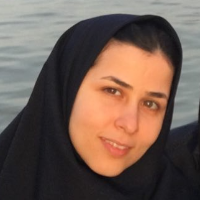Developing and Validating the Farayesh Process-Based Program to Enhance Executive Functions for Students with Mathematical Learning Disabilities
It is hypothesized that there are deficiencies in the Executive Functions (EF) as well as specific–domains of mathematics learning, as the substructure of mathematical learning disabilities. Furthermore, there is a lack of process–based interventional programs, i.e., specially designed to use numerical and arithmetic materials for students with mathematical learning disabilities. Therefore, the present study aimed to design and validate a process–based program for enhancing EF in students with learning disabilities in mathematics, i.e., called "Farayesh."
The intervention program was designed after studying EF theoretical models and task paradigms. The Farayesh program was generated based on Diamondchr('39')s EF theoretical model (2013) in three components of working memory, inhibition, and switching. The program training approach was process–based, and tasks’ content implements numerical materials and arithmetic processes. The Farayesh was presented in the form of 12 tasks with parallel forms. Four complex span tasks contain categorization span, subtraction span, computation span, and numerical dot–matrix used for working memory component. Four tasks comprise number–word Stroop, number–digit Stroop, size–magnitude Stroop, and stop–signal designed for inhibition component; four tasks are used for switching contain addition–subtraction switching, larger–than–smaller switching (with two rules), number–digit switching, and ones–tens switching. The face and content validity of the program was estimated using the views of 8 experts by the Content Validity Ratio (CVR). For assessing the effects of the program, a quasi–experimental research with a pretest–posttest and an active control group design was used. The research population comprised all third– and fourth–grade students with mathematical learning disabilities in governmental centers for individuals with learning disabilities in Ahvaz City, Iran. In total, 30 students were selected using a purposive sampling method and randomly assigned to the experimental and control groups. The experimental group received 17 sessions of the Farayesh program; however, the control group received their routine schedules. The Wechsler Intelligence Scale for Children–Fourth Edition (WISC–IV) and IRAN KEY–MATH Test of Mathematics was used for recruiting eligible students. Scores, completion time, and the number of errors of the 12 tasks were considered as the pretest and posttest values to assess working memory, inhibition, and switching. The obtained data were analyzed using descriptive and inferential statistics, including Analysis of Covariance (ANCOVA) in SPSS at the significance level of α=0.05.
The obtained data indicated the high reliability and validity of the process–based program of executive function (Farayesh) for students with mathematical learning disabilities. The CVR for all tasks was higher than those of the Lawshe table (CVR>0.75). Thus, the content validity of the program was established. The Farayesh program improved the frequency of correct responses of working memory (p<0.001) and reduced completion time and error in switching (p<0.001) and inhibition tasks (p<0.001) in the experimental group, compared with the controls.
The "Farayesh" program with a process–based approach to teaching core EFs (i.e., working memory, inhibition, & switching) and with a math–specific domain content could be used to stimulate and optimize the pre–existing cognitive capacity of students with mathematical learning disabilities. Implementing this program could improve dysexecutive functions in this group. Additionally, the present study result was consistent with the brain plasticity theory. In other words, it approved that with a sufficient amount of time and effort of cognitive exercises, the inherent capacity of biological, cognitive systems could be eliminated. The Farayesh program could be used as a preventive and therapeutic cost–effective intervention, i.e., especially for children with learning disabilities. The process–based program, "Farayesh," used for improving EFs, is recommended for educational, clinical, and therapeutic use in schools and rehabilitation centers due to its high reliability and validity.
- حق عضویت دریافتی صرف حمایت از نشریات عضو و نگهداری، تکمیل و توسعه مگیران میشود.
- پرداخت حق اشتراک و دانلود مقالات اجازه بازنشر آن در سایر رسانههای چاپی و دیجیتال را به کاربر نمیدهد.


